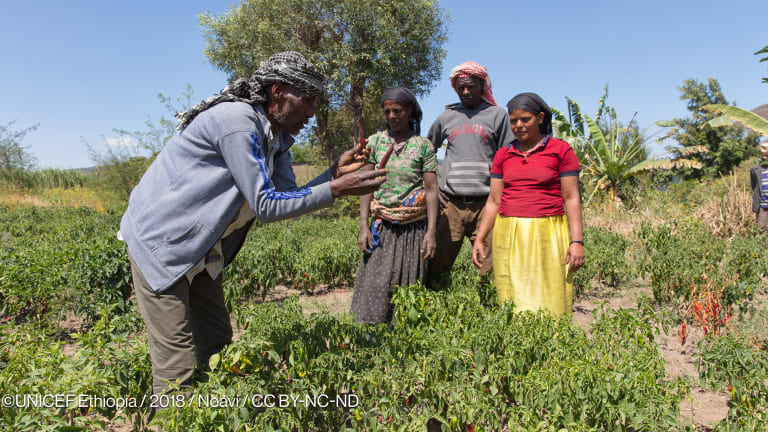
BARCELONA — Africa’s economic and social progress is under threat from persistently high levels of child hunger, according to a report by the Africa Child Policy Forum.
The report — released at last week’s International Policy Conference on the African Child in Addis Ababa, Ethiopia — analyzed United Nations data on malnutrition to find that child hunger currently costs African countries as much as 17% of their gross domestic product. It urges governments to ensure children have enough food to safeguard their country’s economic future, as well as their citizens’ well-being.
“We're asking everyone with an interest in ending child hunger ... to use their influence with African governments to get them to fulfil their obligations and adopt child-friendly economic policies.”
— Assefa Bequele, executive director, ACPF“The trickle-down theory of economic growth is supposed to benefit everyone, but that just is not happening,” said Assefa Bequele, ACPF’s executive director, in an email. “As long as governments shy away from adopting national economic and budgetary policies which put children first, the situation won't get any better.”
Although progress has been made against child malnutrition, Africa’s booming population means the number of children affected continues to grow. In 2018, 58.8 million African children under the age of 5 were stunted — meaning they were prevented from growing or developing properly — compared to 50.3 million in 2000.
But the report argues that for every dollar invested in reducing stunting, there is return of about $22 to be had in Chad, $21 in Senegal, and $17 in Niger and Uganda.
ACPF is calling for further political and legal commitments to ensure universal access to a minimum acceptable amount of food for all children, as well as the implementation of school-feeding programs and increased investment in data collection and analysis to tackle the issue.
“The fact that 60 million children across Africa are hungry right now shows they are being failed both by their governments and the international community,” Bequele said. “It is the offspring of the unholy alliance of political indifference, unaccountable governance, and economic mismanagement.”
Only 10 countries have met their commitment under the 2003 Comprehensive Africa Agricultural Development Programme to allocate at least 10% of their annual public expenditure to agriculture.
While Bequele put the emphasis on domestic government action to tackle hunger and make economic gains, he said it was up to the global development community to use its influence to make sure it happens. “We're asking everyone with an interest in ending child hunger — including development agencies and donor countries — to use their influence with African governments to get them to fulfil their obligations and adopt child-friendly economic policies,” he said.
John Coonrod, executive vice president of The Hunger Project — an NGO mobilizing rural grassroots communities to achieve progress in health, education, nutrition, and family income — said the solution to child hunger lies in strengthening the voices of Africa’s women, who make up 60-80% of the agricultural workforce.
“It’s the No. 1 intervention that needs to come from the international development community,” he said, adding that there is a link between a lack of progress on gender and malnutrition. A patriarchal mindset is an underlying problem when it comes to conflict, climate, and gender issues, he said — all contributing factors to malnutrition. "Back in the eighties, women’s grassroots organizations were a donor fad, but that funding has now dried up,” he said.
Partnerships between “industrially advanced nations” and African institutions alongside increased disaster risk management is another way to prevent child hunger, according to Patrick Canagasingham, CEO at the Christian Children’s Fund of Canada, a partner in producing the report.
He listed child-centered risk monitoring and early warning systems; risk preparedness and response; child-sensitive social protection; risk insurance; and strong risk governance structures as critical to curbing child hunger.
This focus area, powered by DSM, is exploring innovative solutions to improve nutrition, tackle malnutrition, and influence policies and funding. Visit the Focus on: Improving Nutrition page for more.








